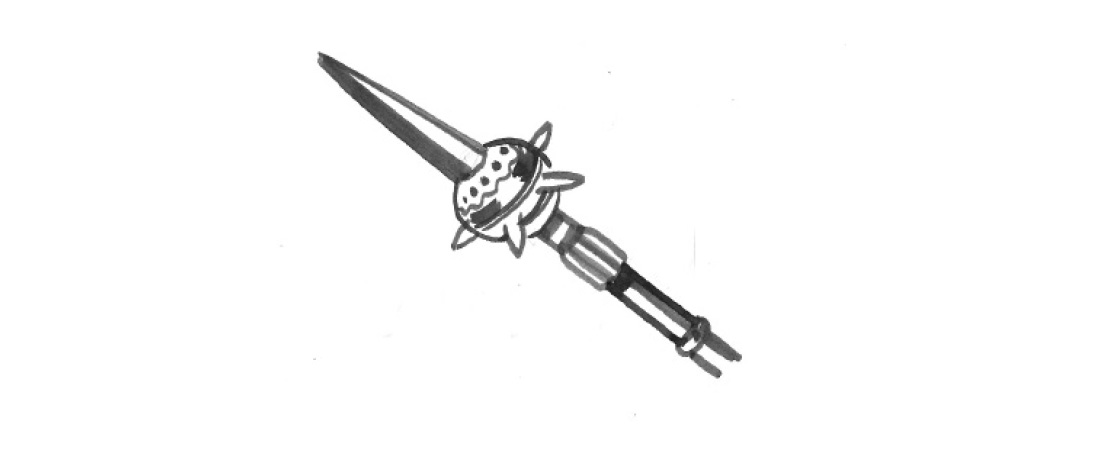“I couldn’t sing, act, tell jokes, play any musical instrument, hit kick or catch a ball, run for more than a few yards without panting, speak another language, or assemble things without them falling apart immediately,” claims Andrew Marr in his 2004 autobiography My Trade: A History of British Journalism, explaining how he “stumbled” into the career of journalism.
Really? Marr is one of those highly successful men with the kind of light hobbies that others would consider taxing as part-time jobs. Not only is Marr a vigorous exerciser, compulsive reader, an established author and a popular historian, he is also an accomplished amateur artist. His show at Eames Fine Arts gallery in Bermondsey last summer displayed an array of bright, Matisse-inspired paintings: nudes, landscapes, still lifes. His aim, to create a “visual platform for engaging with the world”.
His eponymous show has done just that in its 16 years of existence. The nexus of The Andrew Marr Show is its collage of colours and music in the title sequence, its melange of genres: newspaper review, sofa-style interviews, news reports and analysis, politics and culture features (high and lower brow), all anchored by a host whose attention to detail and intense interest in everything – even the weather – gives the viewer a good reason to care, about the show and by dint of that the world.
The show, as Marr would agree, is a part of the establishment. The BBC boasts that it has been broadcast from the state rooms of 10 Downing Street and from the sitting room of David Cameron’s London family home. In 2006, the year after the show (originally called Sunday AM) was launched, Marr called out a “cultural liberal bias” dominating the organisation, claiming “the BBC is not impartial or neutral”.
It is friendlier to leading politicians than other programmes of its ilk. Those who have started avoiding the grilling/interrogations of the Today programme appreciate the softer style of Marr’s questioning. He probes and pushes but is more amicable towards politicians than others. Such an editorial approach was reinforced after an incident in 2009 when Marr pressed the then Prime Minister Gordon Brown on whether he was addicted to painkillers, something he later regretted. The Today programme has regularly been accused of being too aggressive. Marr’s journalistic approach tends towards moving on rather than repeating questions.
It is an approach he will have carefully considered, being someone who clearly ponders the purpose and culture of journalism – the nature of which formed the backbone of My Trade. Dundee-born Marr has, unlike many of his colleagues, worked in all the main branches of the media: his career began in newspapers as a reporter and sub editor and later a columnist; he has been political editor of The Economist and The Independent. His transition to television and radio came in 2000, when he began to front an alarmingly large number of programmes – showcasing his wide interest and skill set (even if he denies it). History, art, music, politics – Marr’s got a series on them all.
Indefatigable – or over-energetic to the envious – over two decades he has fronted so many BBC, and other, programmes that even the most obstinate news-evader recognises his precise and sharp face (as well as his charmingly large ears).
Marr does not deny his blatant status as a member of the liberal elite, which has made him a comfortable host of the show and a natural BBC star. Following the London riots of 2009, he derided a lack of diversity and accompanying hypocrisy in the upper middle classes. He argued those that who are “poor, stupid and racist” had no reason to “listen to a pampered white liberal like me”.
No reason may they have, but if they are a reader of the New Statesman or a listener to LBC, they may start getting a whole load of opinions from AM whether they want them or not.
And where does his departure leave the BBC? Undoubtedly with an interesting succession problem involving a host of well-known names, providing entertainment for politics junkies and rich fodder for critics. Who will want this job in future? As the BBC feels forced to impose ever stricter rules of neutrality on its star presenters, others may also begin to seek greater freedom and a platform to influence, before they reach official retirement age. Marr’s departure may just have kickstarted a trend.


